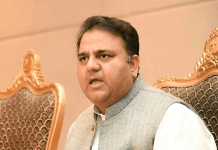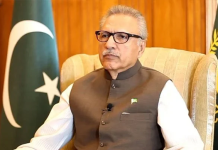ISLAMABAD: The Sustainable Development Policy Institute (SDPI) organised a discussion on civil military relations on Monday.
Senator Farhatullah Babar, while taking part in the discussion, said that political parties and the judiciary both were responsible in the past for inviting and legitimising military interventions.
He said the situation was changed after the adoption of charter of democracy and the judiciary also buried the doctrine of necessity adding that the political parties also demonstrated their commitment during the 2014 protest.
However, in spite of this neither the civilian government nor the judiciary could do anything when General (r) Musharraf was given shelter in a hospital in Rawalpindi, he said.
The dharna, which sought to de-legitimise the parliament, the election commission and democratic structures, while legitimising the security establishment created conditions for allowing Musharraf to escape from accountability, he added.
Babar said that the distortion in civil-military relations was not caused by the security establishment alone adding that distortion is structurally built in when some elements believe that they are above accountability.
The direct military intervention had now been replaced with calling the shots from behind the scene, he said, adding this model of statecraft is fraught with grave dangers to the state and society.
Babar further said that regardless of the mantra of being on one page, the reality was that the civil-military relationship was fractured, and suffered from trust deficit and continuous erosion of the civilian political space. This was true both in terms of optics as well as ground realities, he added.
It was obvious from the photographs of a recent huddle of top civilian ministers in the GHQ, Babar said.
He said that the situation could not be corrected overnight and required patience and constant vigilance. How can it be changed overnight in a country where for more than half of its independent existence the military has ruled directly and where the state is driven by considerations of security rather than welfare of the people, he questioned.
The senator proposed expanded public discourse, setting up of parliamentary committee on national security, institutionalising the discourse between civil and military relations and across the board accountability of all without exception as a way forward. The erosion of civilian space had accelerated during the present government, he opined.













